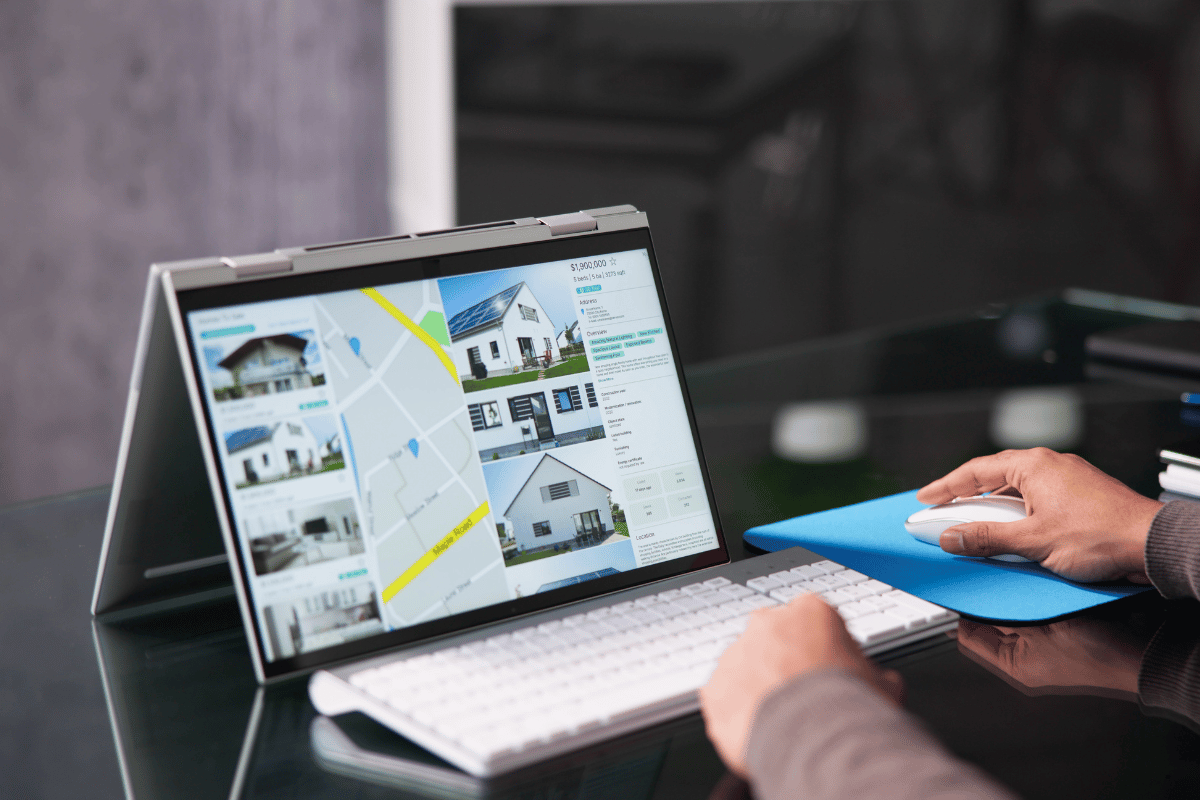Maximizing Efficiency with a Tenant Portal: The Future of Property Management
As property managers strive to create a seamless experience for both landlords and tenants, the adoption of tenant portals is revolutionizing the way we manage real estate properties. Tenant portals, which allow for digital interactions between property managers and tenants, have become an essential tool for streamlining day-to-day operations and enhancing tenant satisfaction.
What is a Tenant Portal?
A tenant portal is an online platform that allows tenants to manage various aspects of their rental experience. These portals typically offer a range of features, from paying rent and submitting maintenance requests to reviewing lease agreements and accessing important updates. For property managers, the tenant portal offers a centralized way to oversee property operations, automate tasks, and keep tenants engaged and informed.
Why Tenant Portals are Essential for Property Management
- Streamlining Communication Effective communication is key in property management, and tenant portals ensure that lines of communication are always open. Tenants can send inquiries, report maintenance issues, and receive important notices through the platform. Automated alerts keep tenants informed about payment due dates, scheduled maintenance, or community updates, reducing the need for phone calls and emails.
- Automated Rent Collection One of the most time-consuming tasks for property managers is ensuring timely rent payments. Tenant portals simplify rent collection by offering tenants a secure online platform for automatic or one-time payments. Property managers can track payment history, send reminders, and even apply late fees seamlessly through the portal. This reduces the likelihood of missed payments and ensures a steady cash flow.
- Maintenance Requests and Tracking Instead of juggling maintenance requests through phone calls or emails, tenants can easily submit maintenance requests through the portal. Property managers can assign tasks, track progress, and update tenants on the status of their requests. This streamlined process not only improves tenant satisfaction but also allows property managers to keep a record of maintenance activities, ensuring compliance with regulations and warranties.
- Improved Tenant Retention Tenant satisfaction plays a crucial role in retention, and offering a tenant portal adds convenience to their rental experience. With the ability to manage their rental obligations and requests easily, tenants are more likely to feel valued and supported. A well-functioning portal demonstrates that a property management company is invested in delivering a high-quality service, which can lead to longer leases and lower turnover rates.
- Document Management A tenant portal can store lease agreements, inspection reports, and other important documents in one accessible place. Tenants no longer need to search through emails or paperwork; everything they need is right there in the portal. For property managers, this creates a centralized hub for document management, ensuring that lease renewals, addendums, and notices are easy to find and track.
- Data-Driven Insights Tenant portals can provide property managers with valuable data. By analyzing portal activity, managers can gain insights into tenant behavior, common maintenance issues, and patterns in rent payments. This data can help optimize operations, predict tenant needs, and improve decision-making in terms of property maintenance, upgrades, or marketing efforts.
Enhancing Tenant Experience with Modern Features
In addition to core functionalities, tenant portals can be enhanced with modern features that add value to the tenant experience:
- Mobile Compatibility: A mobile-friendly portal allows tenants to access information and perform actions from their smartphones, adding a layer of convenience.
- Secure Messaging: Some portals offer secure messaging between tenants and property managers, ensuring sensitive information is protected.
- Community Features: Tenant portals can also promote a sense of community by offering event calendars, building announcements, and access to shared amenities.
- Third-Party Integrations: Many portals allow integration with third-party apps, enabling tenants to book cleaning services, pay utility bills, or schedule moving services directly from the platform.
Implementing a Tenant Portal: Best Practices for Success
- Choose the Right Platform
Look for a tenant portal that meets the specific needs of your property management business. Consider the features that are most important to your tenants, such as mobile access, payment flexibility, or support for multiple properties. - Offer Training and Support
For tenants unfamiliar with technology, transitioning to a tenant portal may feel daunting. Provide clear instructions, tutorials, and customer support to help tenants navigate the platform. - Promote Adoption
Encourage tenants to use the portal by emphasizing the benefits, such as the ability to pay rent online, submit maintenance requests easily, and access important documents at any time. You can also incentivize adoption by offering rent discounts for setting up automatic payments or giving prizes for early portal registrations. - Ensure Data Security
Since tenant portals deal with sensitive financial and personal information, it’s essential to choose a platform that offers top-notch security features, including encryption, secure login processes, and compliance with data privacy regulations. - Monitor and Optimize
Once the portal is live, monitor its usage and gather feedback from tenants to continually improve the platform. Pay attention to how efficiently your property management team is using the portal, as this will impact overall effectiveness.
Conclusion
Tenant portals are no longer just a trend in real estate property management; they are becoming a necessity for property managers who want to stay competitive in today’s market. By offering convenience, transparency, and efficiency, tenant portals improve the tenant experience while making property management more streamlined and data-driven. Investing in a quality tenant portal can ultimately save time, reduce costs, and foster stronger relationships with tenants, ensuring long-term success for property management businesses.







